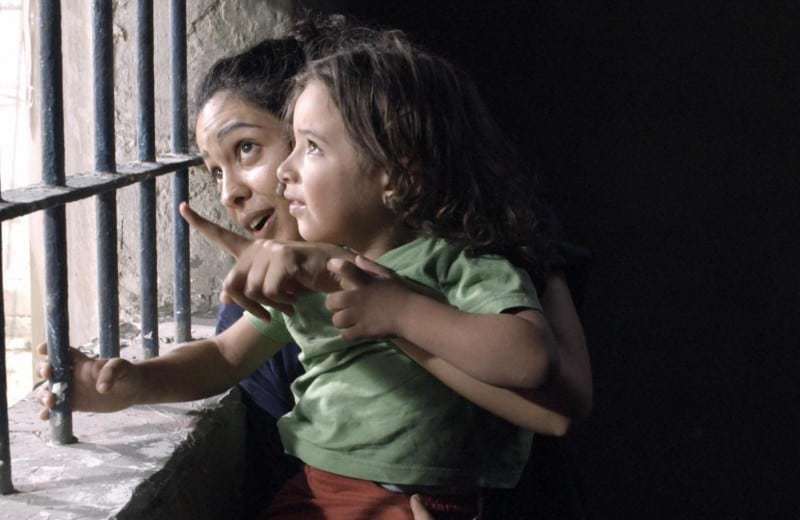Mais Masri’s 3000 Nights was a highlight of the 2015 Toronto International Film Festival, a film by a female director that flew largely under-the-radar. Check out our coverage of other great films directed by women here.
Mai Masri’s 3000 Nights shares some plot points with the TIFF audience-award-winner, Room: an unjustly imprisoned woman finds new hope and purpose from the birth of her son, who remains confined with her for years. Masri’s film layers the political turmoil between Palestine and Israel onto this narrative, as the film’s protagonist Layal (Maisa Abd Elhadi) is a Palestinian woman trapped in an Israeli prison. Like Brie Larson’s character in Room, motherhood opens Layal to her compassion, often letting it guide her even when her anger is overwhelming.
Not only are Palestinian political prisoners afforded fewer rights and privileges than Israeli ones, but they’re also forced to wear uniforms to make their status as Palestinians known within the prison. Though singling out the Palestinians helps them incur the wrath of Israeli prisoners who see them as terrorists, the real threats are the female guards who take daily delight in denigrating the Palestinian women, if not flat out beating and torturing them.
During her eight years in prison seen in 3000 Nights, Layal grows from a strong woman unsure of how to survive prison into someone who learns to play the system, stand up for herself, protect her son, and even rebel against injustice at great personal cost. Abd Elhadi gives a powerful performance as a woman transformed by her harsh experiences. Layal starts as a newly pregnant newlywed, encouraged by her husband and the prison warden to abort, and she ends as a mother driven by compassion and a sense of justice. This allows her to find an unlikely friend in an Israeli prisoner whom she saves from over-dosing. These women find that they have more in common, despite their nationalities, than differences.


